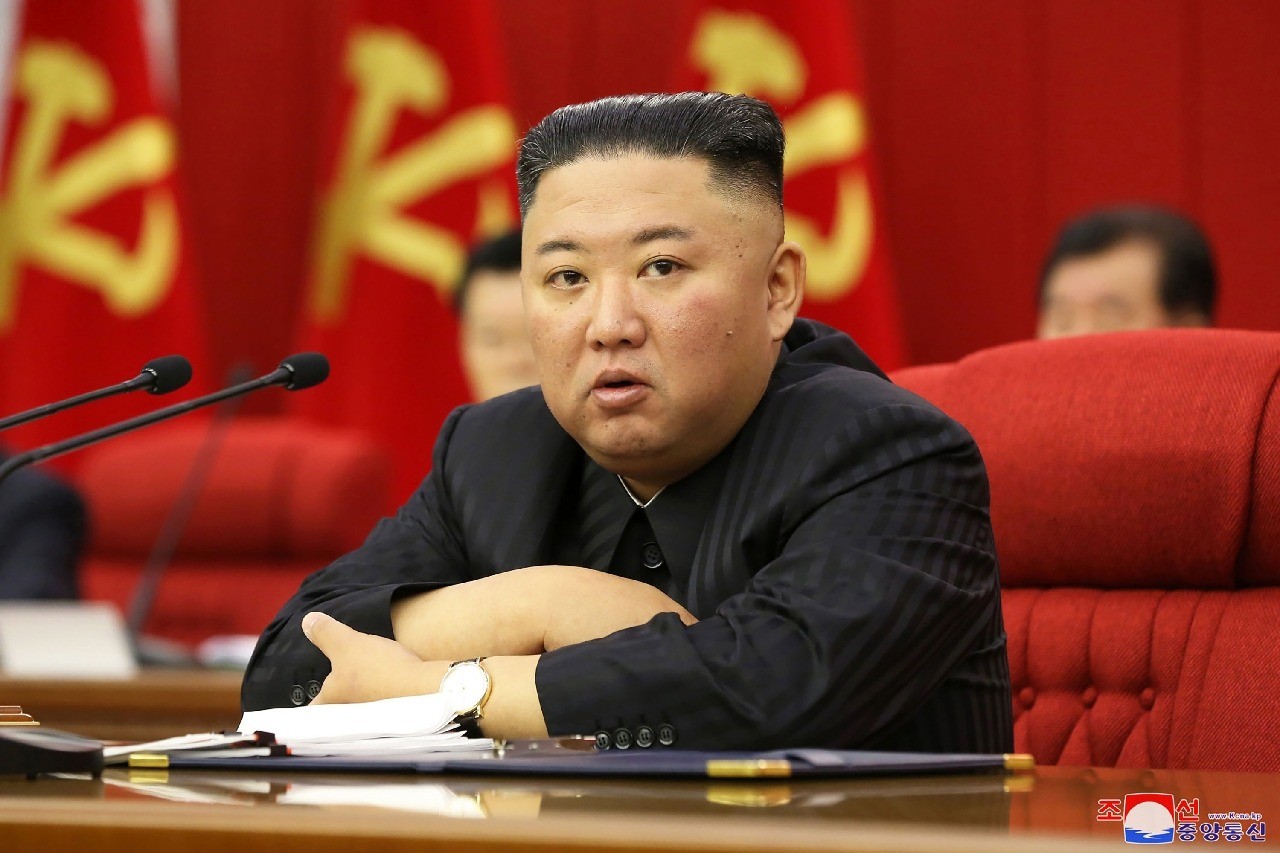North Korean leader Kim Jong Un replaced several senior officials after a “crucial” coronavirus incident, state media reported Wednesday, potentially signalling a breach in the country’s epidemic defences.
Pyongyang closed its borders in January last year to try to protect itself against the virus that first emerged in neighbouring China.
It has not publicly confirmed any cases of the disease at any point, either in state media or in the test statistics it has disclosed to the World Health Organization.
But analysts said the latest development was a clear indication there had been infections in the isolated North, which is under international sanctions for its nuclear weapons and ballistic missile programmes.
Officials had neglected their duties and caused a “crucial” incident, “creating a great crisis in ensuring the security of the state and safety of the people and entailed grave consequences”, Kim told a politburo meeting, according to the state Korean Central News Agency.
It did not specify any details of what had happened.
But Kim added that cadres’ “lack of ability and irresponsibility” had hindered important work, accusing them of “self-protectionism and passiveness”.
Footage on state broadcaster KCTV showed a stream of officials entering the central committee building, and Kim pointing angrily as he addressed the meeting Tuesday. His sister and key adviser Kim Yo Jong was also among the speakers.
The impoverished country’s ramshackle health system and lack of medical supplies would leave it struggling to cope with a major Covid-19 outbreak.
Members of the presidium of the politburo — the highest decision-making body of the ruling Workers’ Party — and the politburo were recalled and new ones named at the meeting, KCNA reported, adding that government officials were “transferred and appointed”.
It did not name names, but the KCTV footage culminated in a near-unanimous show of hands on the podium — when one previously-occupied seat was empty, and marshal Ri Pyong Chol, among the most senior officials in the country, did not take part in the vote, as Kim turned to stare at him.
The KCNA dispatch “basically means North Korea has confirmed cases”, defector and researcher Ahn Chan-il told AFP.
“The fact that the politburo discussed this, and that the KCNA reported about it, signals Pyongyang is probably in need of international aid,” he said.
“Otherwise they would not have done this as it inevitably involves acknowledging the regime’s own failure in its anti-epidemic efforts.”
Park Won-gon of Ewha Womans University in Seoul pointed out that the meeting’s attendance was unusually large and said the reference to “grave consequences” meant it was “possible” that the North had confirmed cases.
“It does look like Pyongyang is going through something serious that’s related to Covid-19,” he added.
High price
Ever since the pandemic began, North Korean state media have highlighted anti-coronavirus measures and officials have exhorted citizens to remain vigilant.
At a military parade in October, Kim himself tearfully thanked his people for their efforts and said the North had not seen a single case of the “evil virus”, although analysts have long doubted the assertion.
And Pyongyang’s coronavirus defence has come at a high price.
Its self-imposed and strictly enforced blockade has left it more isolated than ever: trade with Beijing — its economic lifeline — slowed to a trickle while all international aid workers have left.
Several UN relief groups confirmed to AFP that the Needs and Priorities document — a key report that summarises the humanitarian situation in the country and forms the basis of UN appeals — will not be published this year.
And this month, Pyongyang admitted it was tackling a food crisis, sounding the alarm in a nation with a moribund agricultural sector that has long struggled to feed itself.
Earlier, Kim warned his people to prepare for the “worst-ever situation”.
Pyongyang has been looking to shore up loyalty, with state television last week showing a resident of the capital expressing concern and saying everyone was “heartbroken” over the “emaciated” condition of Kim, who has lost significant weight recently.
Analysts say Pyongyang is using Kim’s appearance as a way to glorify him by portraying him as a “devoted, hardworking” leader as the country struggles to tackle its food crisis and other challenges.
